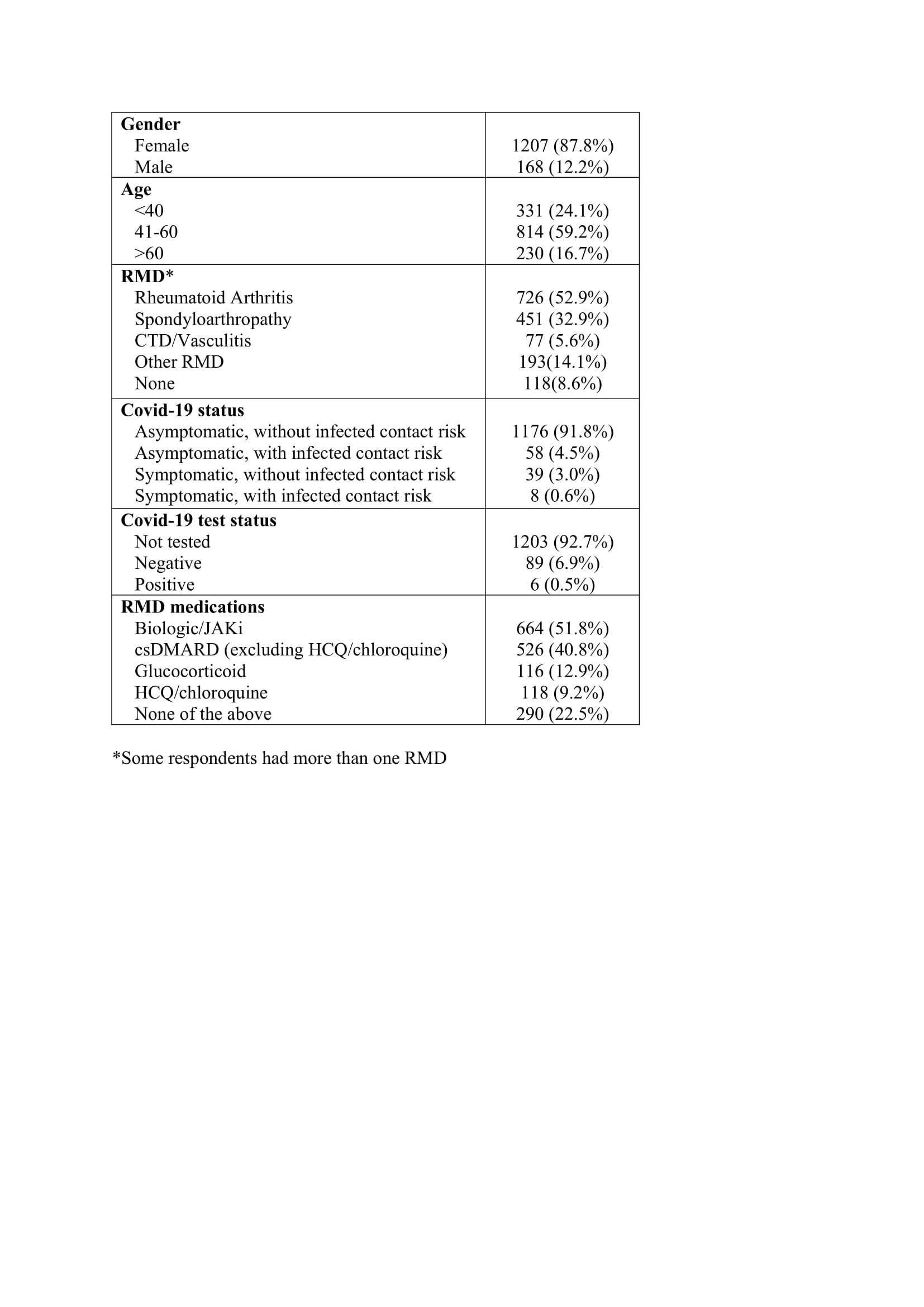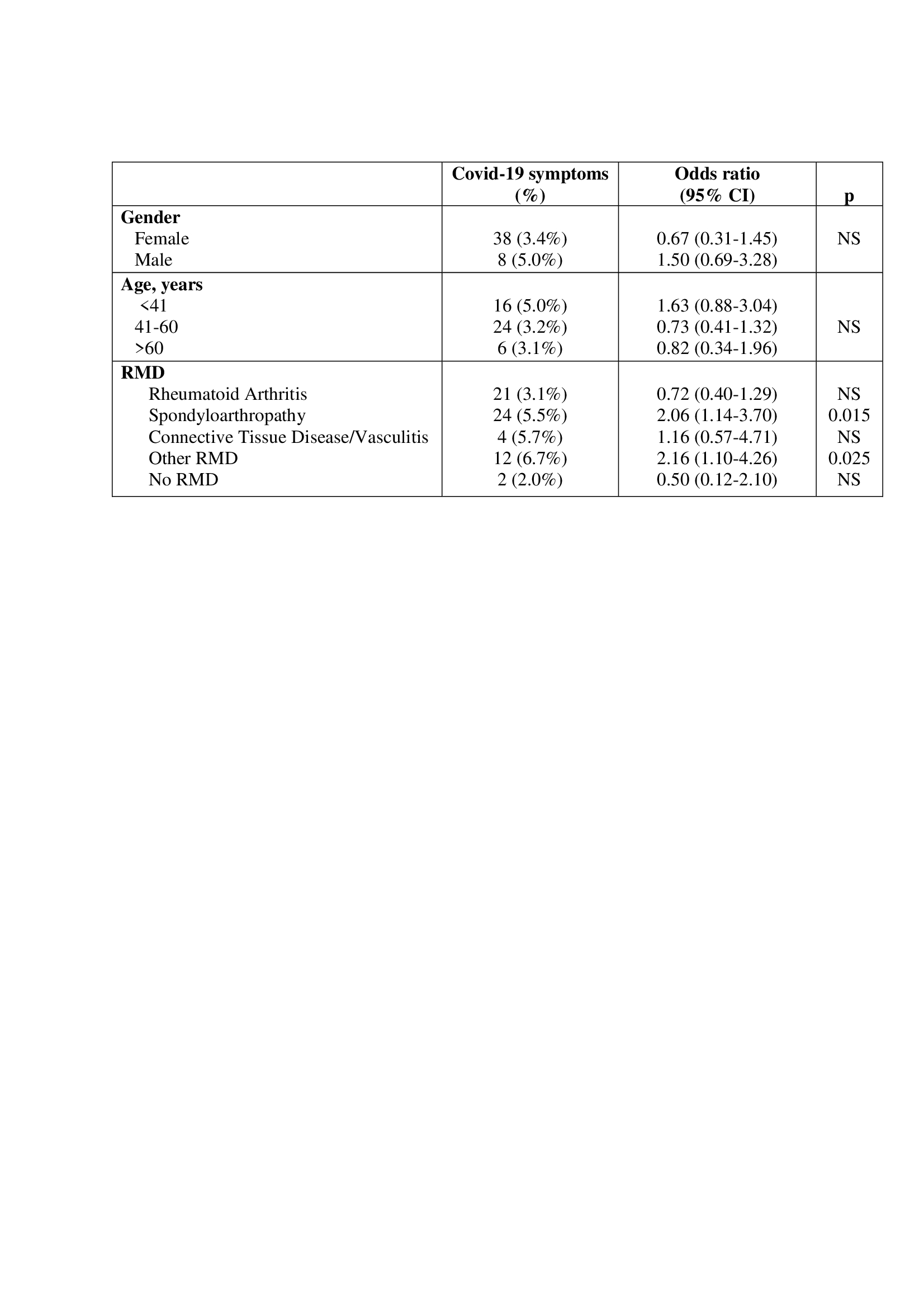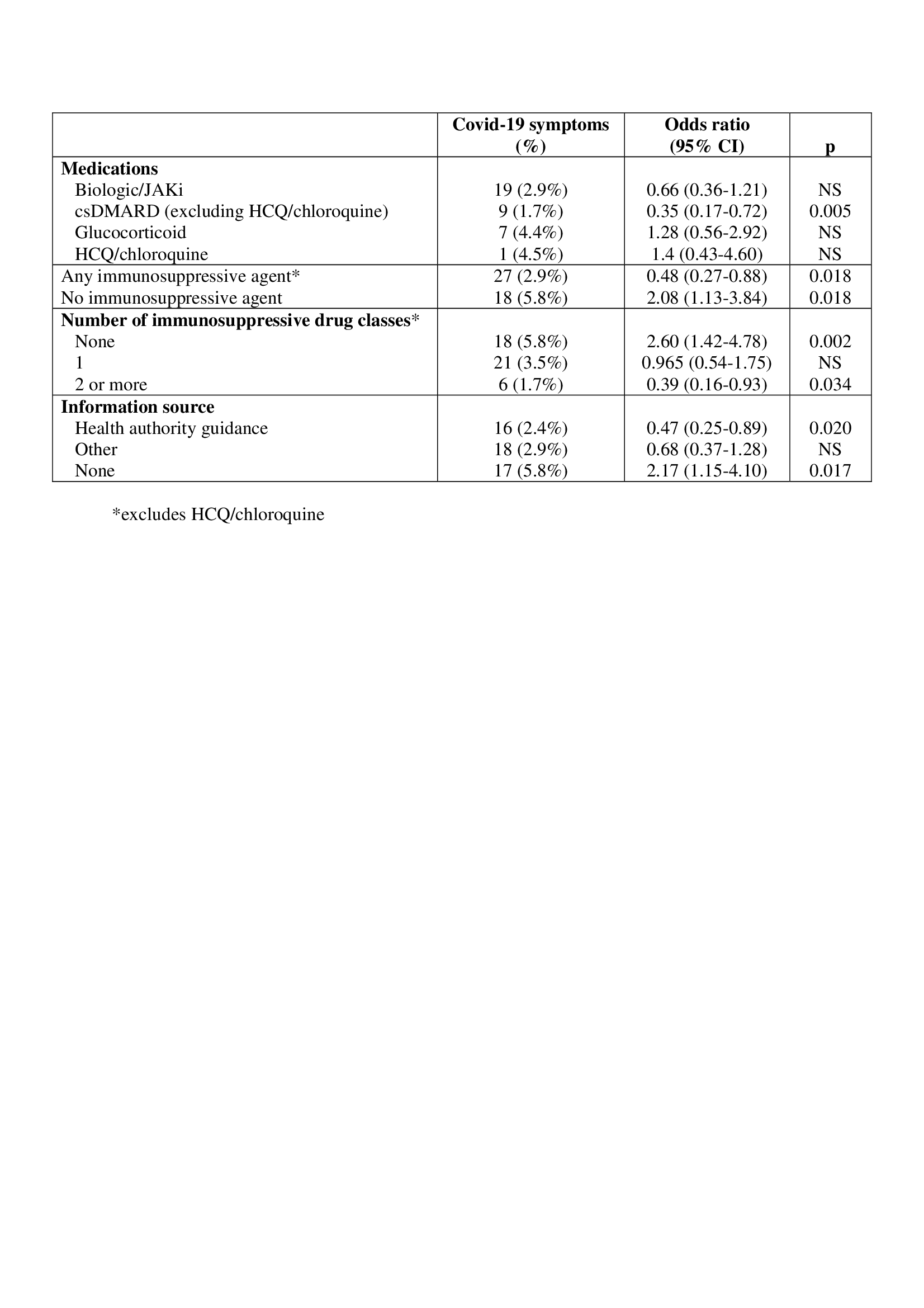Session Information
Session Type: Poster Session B
Session Time: 9:00AM-11:00AM
Background/Purpose: Covid-19 has caused >400,000 deaths. The relationship between RMDs, immunosuppressive medications and Covid-19 is unclear. This study explores Covid-19 prevalence, DMARD adherence, information sources and attitudes to virtual clinics amongst RMD patients during the current pandemic.
Methods: An anonymous online survey to assess Covid-19 status, RMD diagnoses, adherence and information sources was performed. The respondents’ primary information source was assessed for quality and readability using validated scoring systems. Binary logistic regression was used to calculate odds ratios for symptoms of Covid-19.
Results: Table 1 shows respondent characteristics (n=1,381). RA was the most common diagnosis. 47 (3.7%) respondents had symptoms of Covid-19 and 6 (0.5%) tested positive, consistent with the general Irish population. Odds ratios for Covid-19 symptoms were higher amongst those with a SpA and other RMDs and lower in those on immunosuppression, csDMARDs, multiple immunosuppressives and those compliant with health authority guidance (Tables 2 and 3). Adherence to RMD medications was high at 84.1%. The most common reason for non-adherence was concern of an increased risk of infection (58.8%). 57.1% report using health authority guidelines for information on medication use. Importantly, adherence rates were higher amongst those who cited guidelines (p< 0.001), and conversely lower in those with Covid-19 symptoms (p=0.004). Moreover, we found the health authority guidance good quality and highly readable.
68.9% were unsure about potential Covid-19 therapies. Hydroxychloroquine was the most commonly selected potential agent (10.6%). Those with Covid-19 symptoms were more likely to think NSAIDs had a role in treating Covid-19 (20.9% versus 8.4%, p=0.010) amongst those with Covid-19 symptoms.
Finally, the use of virtual clinics was supported by 70.4% of respondents.
Conclusion: The rate of Covid-19 positivity in RMD patients was similar to the general population. Covid-19 symptoms were lower amongst respondents on immunosuppressive medication and those adherent to medication guidelines. Adherence rates were higher than previous studies. Interestingly, a higher proportion of respondents adherent with medications cited health authority guidelines. This study suggests provision of high quality, readable information may significantly influence behaviour with better awareness of social distancing and cocooning guidance and increase adherence and decrease the spread of Covid-19. Respondents were supportive of health authority advice and virtual clinics.
 Table 1. Respondent characteristics
Table 1. Respondent characteristics
 Table 2. Odds ratios of Covid-19 symptoms by demographics and disease
Table 2. Odds ratios of Covid-19 symptoms by demographics and disease
 Table 3. Odds ratio of COVID-19 symptoms by medications and information source
Table 3. Odds ratio of COVID-19 symptoms by medications and information source
To cite this abstract in AMA style:
Murray K, Quinn S, Turk M, O'Rourke A, Molloy E, O'Neill L, Mongey A, Fearon U, Veale D. Covid-19 and Rheumatic and Musculoskeletal Disease Patients: Infection Rates, Attitudes and Medication Adherence [abstract]. Arthritis Rheumatol. 2020; 72 (suppl 10). https://acrabstracts.org/abstract/covid-19-and-rheumatic-and-musculoskeletal-disease-patients-infection-rates-attitudes-and-medication-adherence/. Accessed .« Back to ACR Convergence 2020
ACR Meeting Abstracts - https://acrabstracts.org/abstract/covid-19-and-rheumatic-and-musculoskeletal-disease-patients-infection-rates-attitudes-and-medication-adherence/
